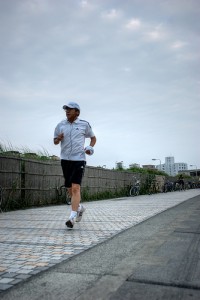If there’s one ‘positive’ that comes from being unwell, it’s that you lose some of the expectation to do certain things and behave in certain ways. When you’re ill you get a free pass and suddenly no one expects you to tidy the house, to walk the dogs, to go on nights out… or any of it really. And the last thing anyone is going to grill you about is heading to the gym.
But then if you take a disabling illness this way – as an excuse not to do things – then you will find that it will actually make matters a lot worse rather quickly. As the old saying goes- use it or lose it. If you don’t keep engaging your body and challenging yourself to do things, then you’ll find that you much more quickly deteriorate. If you don’t get out of the house, then depression will settle in much more quickly, and if you don’t use your body then your muscles will waste away and your joints will stiffen up.
In fact going to the gym is one of the very best things you can do for a huge range of conditions – it acts as a natural anti-depressant, a natural pain killer and a great way to build muscle and keep yourself limber. Of course you need to be more careful though, and you need to work extra hard to find the motivation…
How to Work Out Safely
The number one priority when working out while you’re unwell is to be careful, and to avoid making yourself worse. That means that first and foremost you should consult with your doctor to make sure your new routine will be doing good rather than harm. Ask them which exercises are safe and which aren’t and whether or not it’s a good idea in general.
From there you also then need to listen to your body, and train in a way that is careful to avoid causing pain or putting stress on your weaker areas. For instance that might mean that if you have a bad knee, you will train CV using a supine position – in other words leaning back on the bicycle to avoid bearing weight. Alternatively swimming might be more appropriate.
If you have heart conditions or back problems you might want to entirely avoid too much exertion. It may be that a slow and gentle walk on the treadmill is all you need to begin with Or just a walk outside regularly. If you can do more though, then you might even find you enjoy challenging your body and learning your limitations and it can be a great source of confidence.
Finding the Energy
Finding energy to train is difficult at the best of times if you lead a hectic life, but when you are bed ridden, in pain, or stressed from the rigours of illness it becomes even more of a challenge. Using a gym buddy can really help you to make this a little more bearable and give you the motivation you need. Likewise working towards goals – such as walking the marathon can help – as can simply finding ways to pick you up during the day. When your mood is high, you will be more likely to make it into the gym.
Today’s featured writer, Jenny Wadlow, is a professional freelance blogger. She often writes articles for Family Private Care, leading providers of home care services. She enjoys travelling and likes going camping on weekends. You can follow her on Twitter for more information.





Leave a Reply